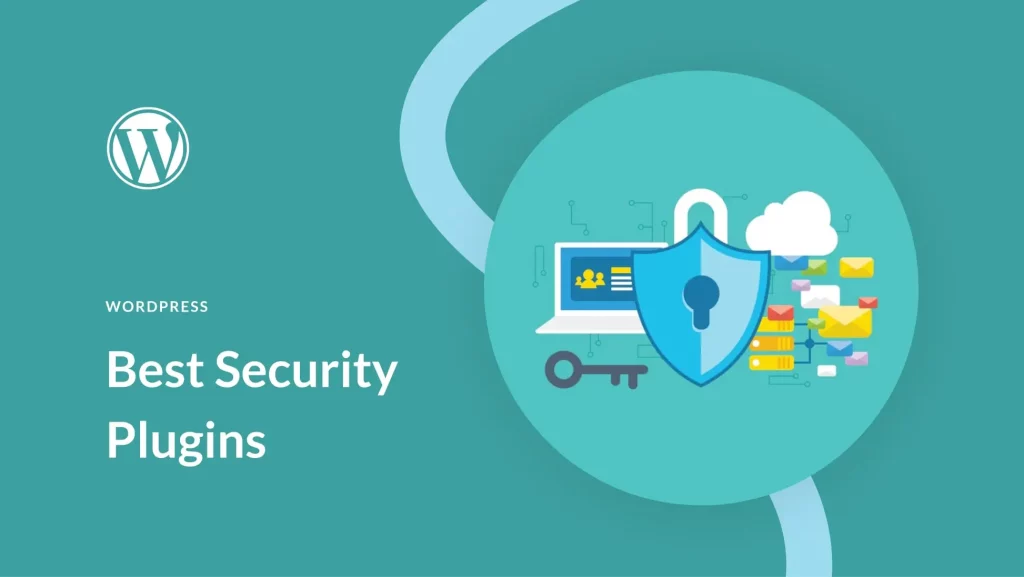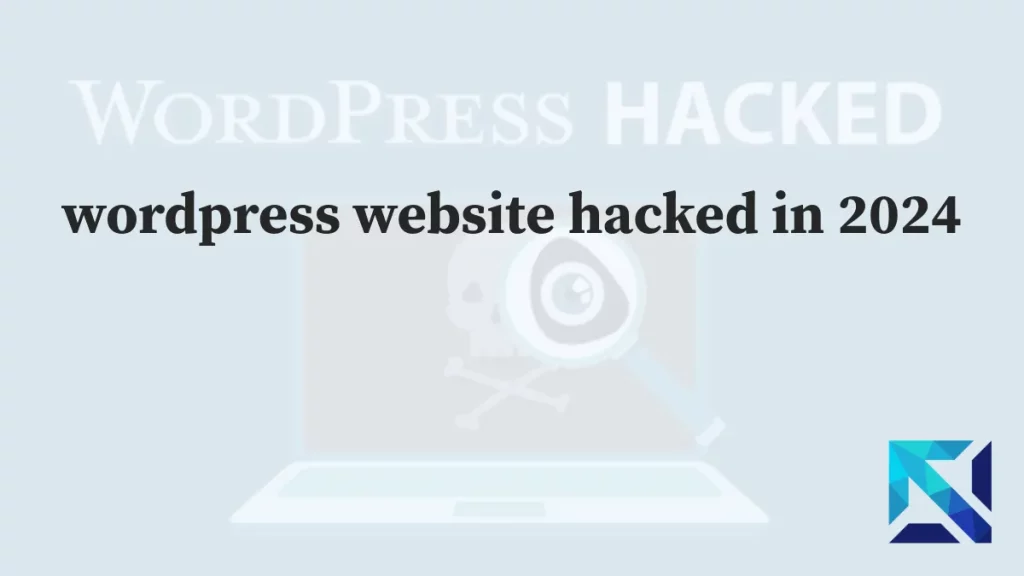In the digital world, security is paramount.
Especially when it comes to WordPress, a platform powering over 40% of the web.
WordPress, while robust and user-friendly, is not immune to security threats.
From brute force attacks to SQL injections, the threats are real and ever-evolving.
This is where WordPress security plugins come into play.
They serve as your website’s first line of defense, fortifying it against potential cyber threats.
But with a plethora of options available, choosing the right one can be daunting.
What features should you look for?
How do you gauge their effectiveness?
How do they integrate with other cybersecurity tools?
In this comprehensive guide, we aim to answer these questions and more.
We will delve into the world of WordPress security plugins, helping you make an informed decision for your website’s safety.
Stay tuned as we explore the best WordPress security plugins for maximum protection.
The Importance of WordPress Security Plugins
The importance of WordPress security plugins cannot be overstated. They serve as the first line of defense for your website, protecting it from various cyber threats such as brute force attacks, SQL injections, malware, phishing attacks, and more.
These plugins help prevent unauthorized access to your website, databases, and user data, ensuring the integrity, availability, and confidentiality of your online presence.
By detecting threats early and responding effectively, security plugins play a crucial role in safeguarding your website and maintaining the trust of your users.
Understanding WordPress Security
WordPress security is a broad term.
It encompasses all measures taken to protect your WordPress site from threats.
These threats can come in many forms.
They can be as simple as spam comments or as complex as SQL injections.
The goal of WordPress security is to prevent unauthorized access.
This includes access to your website’s backend, your databases, and your users’ data.
But it’s not just about prevention.
WordPress security also involves detecting threats early.
And responding to them swiftly and effectively.
It’s about ensuring the integrity and availability of your website.
And protecting the confidentiality of your users’ data.
In essence, WordPress security is about safeguarding your online presence.
And maintaining the trust of your users.
This is where WordPress security plugins come in.
Common WordPress Security Threats
WordPress sites face a variety of security threats.
Brute force attacks are common.
This is when hackers try to guess your password by trying different combinations.
Then there are SQL injections.
These occur when an attacker exploits a vulnerability in your database.
Cross-site scripting (XSS) is another threat.
This involves injecting malicious scripts into your website.
Malware is also a significant concern.
These are malicious software that can cause harm to your website.
Phishing attacks are also common.
These involve tricking users into revealing sensitive information.
And let’s not forget about DDoS attacks.
These are attempts to make your website unavailable by overwhelming it with traffic.
Each of these threats poses a significant risk to your WordPress site.
The Role of Security Plugins in Mitigating Threats
WordPress security plugins play a crucial role in mitigating these threats.
They provide a layer of protection for your website.
They can block brute force attacks by limiting login attempts.
They can prevent SQL injections by securing your database.
They can stop XSS attacks by sanitizing user input.
They can detect and remove malware from your site.
They can protect against phishing attacks by securing user data.
And they can mitigate DDoS attacks by blocking malicious traffic.
In essence, security plugins are your website’s first line of defense.
They are an essential tool in your WordPress security toolkit.
Criteria for Choosing the Best WordPress Security Plugins
Choosing the right WordPress security plugin is crucial.
But with so many options available, it can be overwhelming.
So, how do you choose the best one?
First, you need to understand your security needs.
Every WordPress site is unique.
And so are its security needs.
A small blog may not need the same level of security as an e-commerce site.
But every site, regardless of its size or purpose, needs some level of protection.
Next, you need to consider the features of the plugin.
Not all security plugins are created equal.
Some offer basic protection, while others provide comprehensive security solutions.
You also need to consider the performance of the plugin.
A good security plugin should not slow down your website.
Finally, consider the support provided by the plugin developer.
Good support can make a big difference, especially when you’re dealing with a security issue.
Essential Features to Look For
When evaluating WordPress security plugins, there are several key features to look for.
First, look for a plugin that offers a firewall.
A firewall can block malicious traffic before it reaches your website.
Next, look for a plugin that offers malware scanning.
This can help you detect and remove malware from your site.
Also, consider a plugin that offers login security.
This can help protect your site from brute force attacks.
Look for a plugin that offers regular security audits.
This can help you identify potential vulnerabilities in your site.
Consider a plugin that offers two-factor authentication.
This adds an extra layer of security to your login process.
Also, look for a plugin that offers backup solutions.
This can help you recover your site in case of a security breach.
Finally, consider a plugin that offers regular updates.
Regular updates ensure that your plugin can protect against the latest threats.
Evaluating Plugin Performance and Support
The performance of a security plugin is crucial.
A poorly performing plugin can slow down your website.
And a slow website can lead to a poor user experience.
So, how do you evaluate the performance of a plugin?
First, check the plugin’s impact on your site’s load time.
A good security plugin should have minimal impact on load time.
Next, check the plugin’s compatibility with your WordPress version.
A compatible plugin is less likely to cause performance issues.
Also, consider the plugin’s impact on your server resources.
A resource-intensive plugin can slow down your server.
Finally, consider the support provided by the plugin developer.
Good support can be invaluable, especially during a security crisis.
Check if the developer offers timely and helpful responses to queries.
Also, check if the developer provides regular updates and patches.
A well-supported plugin is more likely to provide reliable protection.
Top WordPress Security Plugins Reviewed
In this section, we will review the top WordPress security plugins.
Each plugin has been evaluated based on its features, performance, and support.
We will provide a brief overview of each plugin.
Then, we will delve into the key features and benefits of each.
We will also discuss the pros and cons to help you make an informed decision.
Let’s get started.

Plugin 1: Wordfence Security
Wordfence Security is a popular WordPress security plugin.
It offers a comprehensive suite of security features.
It is known for its robust firewall and malware scanner.
Key Features and Benefits
- Firewall: Wordfence offers a robust firewall that blocks malicious traffic.
- Malware Scanner: The plugin scans your site for malware and removes it.
- Login Security: Wordfence offers two-factor authentication for added login security.
- Security Audits: The plugin offers regular security audits to identify vulnerabilities.
- Updates: Wordfence is regularly updated to protect against the latest threats.
Pros and Cons
Pros:
- Comprehensive security features
- Regular updates
Cons:
- Can be resource-intensive
- Some features are only available in the premium version
Plugin 2: Sucuri Security
Sucuri Security is another top WordPress security plugin.
It offers a range of security features, including a firewall and malware scanner.
It is known for its effective security hardening measures.
Key Features and Benefits
- Firewall: Sucuri offers a powerful firewall that blocks malicious traffic.
- Malware Scanner: The plugin scans your site for malware and removes it.
- Security Hardening: Sucuri offers effective security hardening measures to protect your site.
- Security Audits: The plugin offers regular security audits to identify vulnerabilities.
- Updates: Sucuri is regularly updated to protect against the latest threats.
Pros and Cons
Pros:
- Effective security hardening measures
- Regular updates
Cons:
- Some features are only available in the premium version
- Can be complex for beginners
Plugin 3: iThemes Security
iThemes Security is a comprehensive WordPress security plugin.
It offers a range of security features, including two-factor authentication and security audits.
It is known for its user-friendly interface.
Key Features and Benefits
- Two-Factor Authentication: iThemes offers two-factor authentication for added login security.
- Security Audits: The plugin offers regular security audits to identify vulnerabilities.
- User Role Management: iThemes allows you to manage user roles and permissions effectively.
- Updates: iThemes is regularly updated to protect against the latest threats.
- User-Friendly Interface: The plugin offers a user-friendly interface, making it easy to manage your site’s security.
Pros and Cons
Pros:
- User-friendly interface
- Regular updates
Cons:
- Some features are only available in the premium version
- Can be resource-intensive
Plugin 4: All In One WP Security & Firewall
All In One WP Security & Firewall is a comprehensive WordPress security plugin.
It offers a range of security features, including a firewall and login security.
It is known for its easy-to-use interface and detailed security reports.

Key Features and Benefits
- Firewall: The plugin offers a robust firewall that blocks malicious traffic.
- Login Security: The plugin offers login security features to protect against brute force attacks.
- Security Reports: The plugin provides detailed security reports to help you understand your site’s security status.
- Updates: The plugin is regularly updated to protect against the latest threats.
- User-Friendly Interface: The plugin offers a user-friendly interface, making it easy to manage your site’s security.
Pros and Cons
Pros:
- User-friendly interface
- Detailed security reports
Cons:
- Some features are only available in the premium version
- Can be resource-intensive
Plugin 5: Jetpack Security
Jetpack Security is a popular WordPress security plugin.
It offers a range of security features, including real-time backups and malware scanning.
It is known for its easy-to-use interface and comprehensive security solution.

Key Features and Benefits
- Real-Time Backups: Jetpack offers real-time backups to protect your site’s data.
- Malware Scanner: The plugin scans your site for malware and removes it.
- Downtime Monitoring: Jetpack monitors your site and alerts you if it goes down.
- Updates: Jetpack is regularly updated to protect against the latest threats.
- Comprehensive Security Solution: The plugin offers a comprehensive security solution, covering various attack vectors.
Pros and
Integrating Security Plugins with Other Cybersecurity Tools
While WordPress security plugins offer robust protection, they are just one part of a comprehensive security strategy.
It’s important to integrate these plugins with other cybersecurity tools.
This will provide a layered defense against various types of threats.
Let’s explore how you can complement your security plugins with other tools.
We will focus on web application firewalls (WAFs) and backup solutions.
Complementing Plugins with Web Application Firewalls (WAFs)
Web Application Firewalls (WAFs) are a crucial part of website security.
They filter and monitor HTTP traffic between a web application and the Internet.
By integrating a WAF with your security plugin, you can block malicious traffic before it reaches your site.
This adds an extra layer of protection against common threats like SQL injections and cross-site scripting (XSS).
Many WordPress security plugins offer built-in WAFs, but standalone WAFs can provide more advanced features.
Enhancing Security with Backup Solutions
Backup solutions are another essential tool for WordPress security.
They allow you to create copies of your website data, which can be restored in case of a security breach.
While some security plugins offer backup features, dedicated backup solutions often provide more comprehensive options.
For example, they may offer automated backups, off-site storage, and easy restore functions.
Integrating a backup solution with your security plugin ensures that you can quickly recover your site if it’s compromised.
How do WordPress security plugins work?
WordPress security plugins work by adding an extra layer of protection to your WordPress site.
They typically offer features such as firewall protection, malware scanning, login security, security audits, and regular updates.
These plugins monitor your site for suspicious activity, block malicious traffic, scan for malware, and provide detailed security reports.
By continuously updating to protect against the latest threats, they help enhance the overall security of your website.
Additionally, some plugins offer user-friendly interfaces for easy management of your site’s security settings.
WordPress Security Best Practices Beyond Plugins
While plugins play a crucial role in securing your WordPress site, they are not the only measure you should take.
There are several best practices that can further enhance your site’s security.
These practices complement the protection offered by security plugins.
They help to create a comprehensive defense strategy against various threats.
Let’s explore some of these best practices.
Regular Updates and Maintenance
Keeping your WordPress site updated is a fundamental security practice.
This includes updating the WordPress core, themes, and plugins.
Updates often contain security patches for known vulnerabilities.
By not updating, you leave your site exposed to these vulnerabilities.
Regular maintenance also involves removing any unused themes or plugins, as they can become potential security risks.
Strong Password Policies and User Role Management
Another important practice is implementing strong password policies.
This includes using complex passwords and changing them regularly.
You should also limit the number of login attempts to prevent brute force attacks.
Managing user roles effectively is also crucial.
Assign the least amount of privilege necessary to each user to minimize potential damage if their account is compromised.
Implementing SSL and HTTPS
Implementing SSL (Secure Sockets Layer) and HTTPS (Hyper Text Transfer Protocol Secure) is another key security practice.
SSL encrypts the data transferred between your site and its visitors.
This prevents attackers from intercepting and tampering with the data.
HTTPS is the secure version of HTTP, indicating that SSL is implemented.
Most browsers now warn users when they visit a non-HTTPS site, so implementing SSL and HTTPS is also important for user trust.
Handling Security Breaches: Steps to Recovery
Despite your best efforts, security breaches can still occur.
It’s important to know how to respond effectively.
A swift and appropriate response can minimize the damage.
It can also prevent future breaches.
Here are the key steps to recovery after a security breach.
Identifying the Breach
The first step is identifying the breach.
This involves detecting unusual activity on your site.
Your security plugin can help with this.
It can send alerts when it detects potential threats.
Regularly reviewing your security logs can also help identify breaches.
Cleaning Up and Restoring Your Site
Once you’ve identified the breach, the next step is to clean up.
This involves removing any malicious code or files from your site.
Your security plugin can assist with this process.
After cleaning up, you should restore your site to a previous, clean version.
This is where regular backups come in handy.
What is the anti-hacker plugin for WordPress?
There isn’t one single “anti-hacker” plugin for WordPress that guarantees complete protection. WordPress security is a layered approach, and the best course of action involves a combination of strategies.
However, several well-regarded security plugins can significantly improve your website’s defense against hacking attempts. Here are a few popular options:
Wordfence Security: This free plugin offers a robust firewall, malware scanning, login security features, and website monitoring tools.
Sucuri Security: Sucuri provides a free and premium version with website hardening features, malware scanning, security audits, and post-hack cleanup options (paid plans).
iThemes Security (formerly Better WP Security): This plugin offers a range of security features, including two-factor authentication, user access control, and security hardening options.
Are there any free WordPress security plugins that are reliable?
Yes, there are several reliable free WordPress security plugins available. Here are a few popular options:
- Wordfence Security: This plugin offers a robust suite of features, including malware scanning, firewall protection, login security, and two-factor authentication. While it has a premium version with additional features, the free version provides a solid foundation for basic website security.
- Sucuri Security: This plugin offers website security scanning, malware detection and removal, post-hack cleanup assistance, and website hardening measures. The free version focuses on monitoring and basic protection, with more advanced features available in their premium plans.
- All In One WP Security & Firewall: This user-friendly plugin offers a variety of security features such as login security, user activity monitoring, database backups, and comment spam protection. It’s a good option for beginners due to its straightforward interface.
- Anti-Malware Security: This plugin focuses specifically on malware detection and removal. It can scan your website for malicious code, protect against file changes, and quarantine threats. While it doesn’t offer a comprehensive security suite like some others, it’s a valuable tool for malware protection.
Important Considerations:
- Free vs. Premium: While free versions offer good protection, premium versions of these plugins often have additional features like real-time monitoring, advanced firewall rules, and vulnerability patching.
- Features: Evaluate your specific security needs and choose a plugin that offers the features most relevant to you.
Updates & Support: Ensure the plugin is actively maintained and receives regular updates to address new security threats. Free plugins might have limited support options compared to premium versions. - Remember: Even with a security plugin, it’s crucial to maintain good security practices like using strong passwords, keeping WordPress core, themes, and plugins updated, and being cautious when installing plugins from untrusted sources.
Conclusion: Securing Your WordPress Site
Securing your WordPress site is a crucial task.
It’s not just about installing a plugin and forgetting about it.
It requires regular updates, monitoring, and maintenance.
The right security plugin can make this task easier.
But it’s only one part of a comprehensive security strategy.
Recap of Best WordPress Security Plugins
We’ve reviewed several top WordPress security plugins.
Each has its strengths and weaknesses.
Your choice should depend on your specific needs.
Remember to consider factors like features, ease of use, and support.
Final Thoughts on Website Security
Website security is an ongoing process.
It’s about more than just preventing attacks.
It’s about responding effectively when they do occur.
And it’s about constantly improving your security measures.
With the right tools and strategies, you can keep your WordPress site safe and secure.
What are the legal considerations for using WordPress security plugins?
Some plugins collect user data, which may have legal implications.
Always ensure your plugin complies with privacy laws like GDPR
How do security plugins prevent attacks?
Security plugins use various methods to prevent attacks.
These include firewalls, malware scanning, and login security.
Is a security plugin necessary for a small WordPress blog?
Yes, even small blogs are targets for hackers.
A security plugin can help protect your site.
Can I use multiple security plugins at once?
Yes, but it's not always beneficial.
Multiple plugins can cause conflicts and slow down your site.
Do security plugins affect website performance?
Some plugins can slow down your site.
Choose a plugin that balances security and performance.





